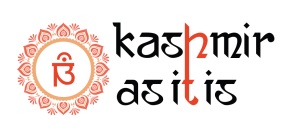According to the Vedic traditions, Hindus all over the world celebrate festivals, follow customs and rituals, and observe various fasts during a calendar year. There are 18 Sanaskars mentioned in the traditions of the Kashmiri Pandit (KP) community, which are performed right from being in the womb till death. There is one more ritual other than these 18, which is performed only after the death of a person by his/her family members.
This ritual is called Shraadha (श्राद्ध). The word Shraadha means, an act done out of devotion towards our ancestors. It is said that we owe everything to our ancestors, hence, during a year we should pay homage to them, as whatever we have today, is only because of the blessings and sacrifices made by our ancestors. Although, Shraadha can be performed on every Amavasya, however, there is a special tradition of performing Pitra Shraddh starting from the Purnima of Bhadrapada month till the Amavasya of Ashwin month. These 16 days are dedicated to the remembrance and worshipping of our ancestors.
There is a notion that Hindus consider this fortnight as inauspicious because Shraadha Karma (श्राद्ध कर्म) is performed during this period. This notion is entirely baseless because the intent is to make people focus on the Pitra Puja. The Shastras say that performing Pitra Puja is much important than Dev Puja.
In Kashmir, every household used to do all type of Dhan-Dharma, and offerings were made to Brahmins. In addition to this people used to donate food, clothing, and utensils to the poor and needy during Pitra-Paksha in the remembrance of their ancestors. Every day fresh meals were prepared, and no left-over food or outside food was eaten during this period. The fresh meal prepared was first offered to ancestors and birds and then served to other members of the family. The Shraadha performed in Pitra-Paksha is considered more important than done on any other day. The Shraadha of those ancestors whose date is unknown shall be performed on the Pitra Paksha Amavasya. The Amavasya of Ashwin month has a greater significance, as, if we forget to perform our ancestors Shraadha then we can perform it on this Amavasya. For Shraadha Sankalp Viddhi, we
keep a fast and we do Sankalp by donating rice, fruits, salt, and some money to the needy person in the name of our ancestor.
As per Vedic traditions a person must repay three kinds of debts (ऋण) during his lifetime; one is Dev Rin which can be repaid by worshipping God and by living a virtuous life. The second debt is Rishi Rin, which can be repaid by acquiring knowledge of scriptures and sharing this knowledge with others. The third and last debt is Pitra-Rin, it is repaid by following the Kul-Parampara, by doing Tarpan and Shraadha and by inculcating values in our children. Thus Pitra-Paksha is that fortnight of the year when we pay homage to our ancestors by doing Shraadha Sankalpa.
Article by Neelam Razdan Wali






